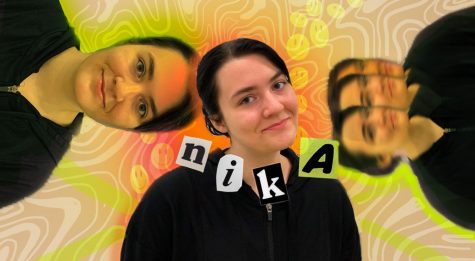Ukraine until the End
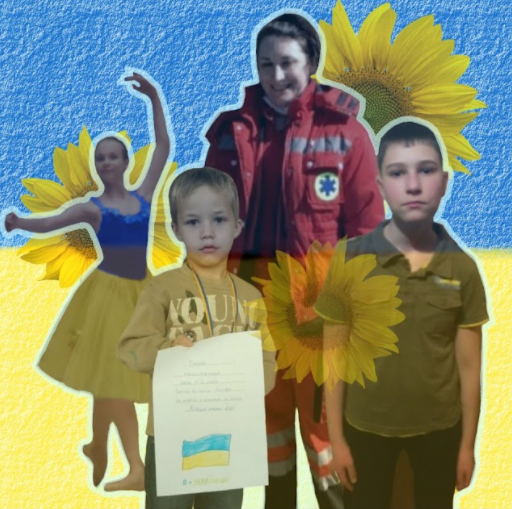
Like many other Ukrainians, my family members (featured in this photo) were forced to leave their homes.
May 6, 2022
To help the world understand the current situation in Ukraine, I maintained contact with several of my closest Ukrainian relatives. I also was able to interview a family member who asked to be referred to as Igor. He lives in the Obolon district of Kyiv, where the famous video of a Russian tank running over a man in his car was taken. Thankfully, the man survived. Igor was one of the few family members I have that remained in Kyiv.
Igor began our conversation by telling me about the days leading up to the war, when he was talking to his colleagues at work. “I trolled my friends a week before, after the first announcement of intelligence given about the beginning of the war, I said, let’s go to the institution, we’ll sit and chat until the war starts.” Shortly after, one of his coworkers left for Khmelnitsky, which is a city in western Ukraine. Igor also overheard a conversation of another coworker discussing relocation to Poland with representatives of his company.
In the weeks before the invasion, many people were leaving Ukraine. My cousins told me how empty Kyiv was in the beginning of the year 2022. Like many people, I had dismissed the possibility of putin invading my country. The amassed Russian troops at the border did not particularly bother me until I heard news about blood banks and mobile crematoriums heading towards Donbas. Only then did I feel uneasy.
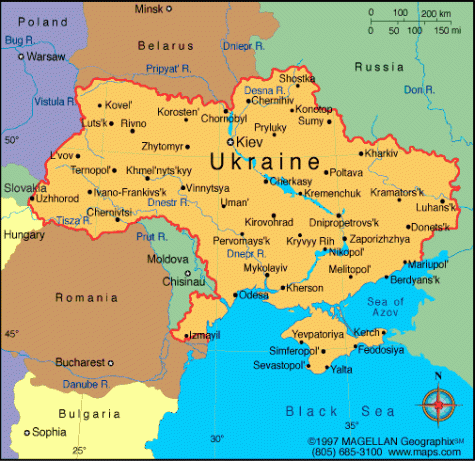
“Something was in the air and people were moving a little bit, sluggishly reacting to the threat, but nobody expected that everything would change so sharply and quickly,” Igor said.
On Feb 23, Igor got a call from his mother on that doomed Wednesday evening. She said that putin gave a speech about starting a “special operation” in Ukraine. Although Igor is not an alarmist, he went to the store to buy a bottle of water, and a quarter of a head of cheese.
Then the war happened.
In the early hours of Feb 24, Kyiv awoke to sounds that resembled thunder. At around 6:00am and 7:00am, Igor said that a large line of cars had formed, heading away from the capital; he worried that they might be driving into worse danger. I received frantic messages from my family members and even a chilling recording of a missile strike. As I talked to everybody I loved over video, I wondered if it would be the last time I would ever see them alive again. I talked to my cousin, who was huddled in the bathtub and the air raid sirens were wailing in the background.
One of our family friends told us, “If a missile strikes our house, I can only pray for a quick and painless death.”
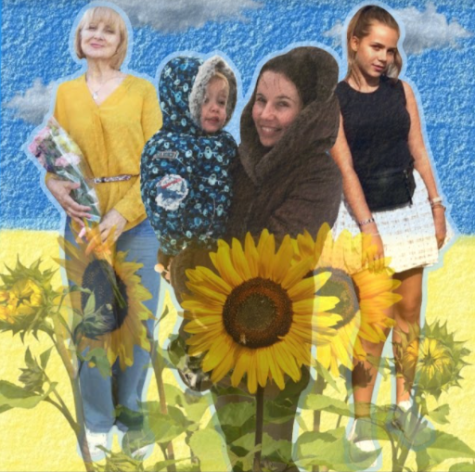
Igor is a notably rational person and his initial reaction to the war had been an emotionless stupor. He described that the invasion was not like a thriller – there was only the dull and senseless reality around him. Igor recalled a dreadful fear setting in after the realization of what happened. He worried mainly for the future and tried to reason what would happen next. Igor constantly mentioned an emptiness about the events surrounding the war, explaining that feeling in a harrowing story an acquaintance told him.
“A woman told us that she tried to escape from her occupied village with her son. The Russians at the checkpoint allowed them to leave, and even waved their hands at them! When they were already driving in the field, those Russians hit the first car, it caught fire, others sat down to jump out of the cars. She told me that her son was driving in another car, in front of her. When she jumped out, she called out to him, but he did not answer. She looked in to see him curled up like a kitten, lying in the back seat. She looked at him and immediately realized that he died. She told this to us so calmly – without any emotions,” Igor hauntingly recalled.
Igor was grateful that the situation in Kyiv was relatively stable as compared to other cities, which had been leveled to the ground. This is because Kyiv’s military is centered around the capital and the city is considered to be safer than most. Igor was even able to return to his work, which he described as an empty office reminiscent of the covid pandemic. Later on, Igor and his family attended a funeral in the eastern Chernihiv region of Ukraine. This was a notable travel, considering roads are dangerous and can be mined. In the villages of Chernihiv, Igor’s family saw people painting fences and cleaning up debris, getting ready for spring. It is in our Ukrainian blood to be enduring, unwavering, and resistant.
“When you hear stories of the occupants stealing things like doghouses, you can really see their terrible standard of living and their values. You want to question them why they want to fight for a country that does not have these things,” Igor’s mother said.
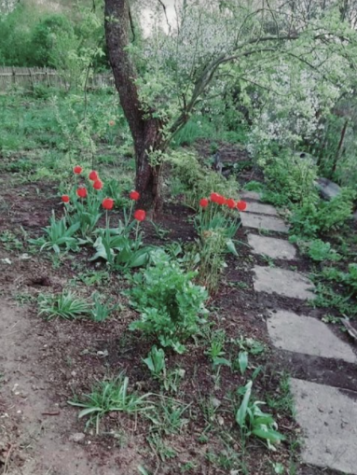
Igor’s mother is an optimist and she tries to keep the spirit of Ukraine alive as much as possible. She said that on March 8 (International Women’s Day) there were soldiers giving out flowers to women in the streets of Kyiv. Many of my relatives are focused on repairing Ukraine and healing the world around them. My aunt’s family lives in Lysychansk, which is a city in the war-torn Luhansk region of eastern Ukraine. They spend their time planting flowers and vegetables in their garden when their city is not being bombed. The family of great-grandparents, grandparents, parents, and children are firmly rooted in Lysychansk and will protect their homeland.
“We will stay in Ukraine until the end,” confidently pledged my great-aunt in Lysychansk.
While Russian troops have left Kyiv and the US Embassy is reopening there, I would like people to reflect on this story. While we live our comfortable lives here, there are Ukrainian cities being bombed into dust and hundreds of civilians being hastily buried in mass graves. While we worry about our insignificant problems, an entire generation of grandparents, parents, and children were murdered by Russian occupants on my childhood streets. The lives of some of my family members still hang on a thread and I hope that nobody would ever have to experience the war, terror, and fear that they feel.


